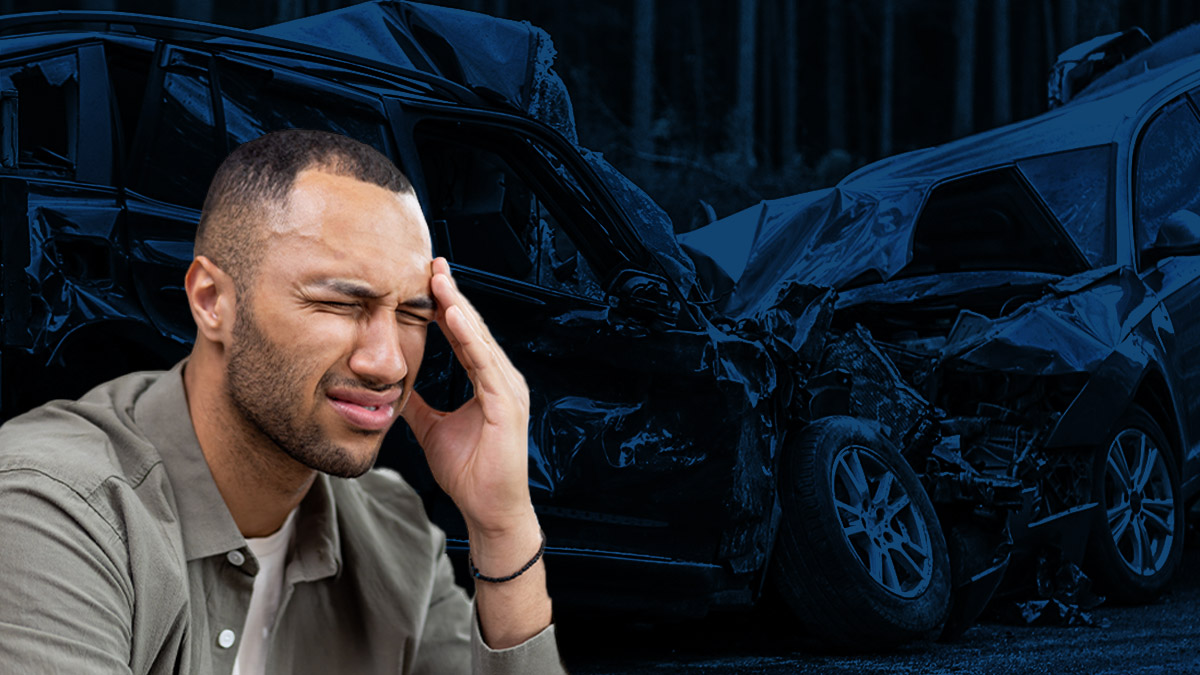Car Accident Attorney Near Me
Central Florida is a vibrant and active community, and with that comes the unfortunate reality of car accidents. While many car accidents result in minor injuries, even seemingly minor head injuries can have lasting consequences. If you’ve experienced a head injury in a car accident, it’s absolutely critical to recognize the potentially severe consequences of such a traumatic event and seek emergency medical attention without delay.
This article explores the dangers of head injury car accidents, including:
- The difficulty of diagnosing head injuries in a car accident: Unlike broken bones or visible wounds, head injuries can be challenging to diagnose, especially in the immediate aftermath of an accident. Symptoms of head injuries may not appear immediately, and some injuries may go unnoticed altogether.
- The different types of head injuries in a car accident: There are a variety of head injuries that can occur in a car accident, ranging from mild concussions to severe traumatic brain injuries (TBIs). Each type of injury has its own unique set of symptoms and potential consequences.
- The long-term effects of head injuries in a car accident: Even mild head injuries can have lasting effects on a person’s cognitive abilities, emotional well-being, and overall quality of life. In severe cases, head injuries can lead to permanent disability or even death.
Head Injury from Car Accident Treatment
The treatment for head injuries varies widely depending on the severity of the injury. For mild concussions, rest and cognitive rehabilitation may be sufficient. More severe head injuries may require medication, surgery, or long-term therapies like physical therapy, occupational therapy, and speech therapy. It’s important to consult with medical specialists to create a personalized treatment plan that addresses your specific needs. Early and appropriate treatment is crucial for optimizing recovery and minimizing the potential for long-term complications.
Car Accident Head Injury Symptoms
Following a car accident, it is important to be aware of the signs and symptoms of a head injury, even if you feel well. Some common symptoms include:
- Headache
- Dizziness
- Nausea or vomiting
- Confusion
- Difficulty concentrating
- Memory problems
- Fatigue
- Sleep disturbances
- Changes in mood or behavior
- Ringing in the ears
- Blurred vision
- Loss of balance or coordination
When Does a Car Accident Head Injury Need Medical Attention
If you experience any of these symptoms after a car accident, it is essential to seek medical attention immediately. Early diagnosis and treatment can help minimize the potential long-term effects of a head injury.
How a Doctor Diagnoses Head Injuries
To diagnose a head injury, a doctor will typically perform a thorough neurological examination, which may include:
- Assessing your level of consciousness and orientation
- Evaluating your cognitive abilities, such as memory, attention, and problem-solving skills
- Testing your motor skills and reflexes
- Checking your vision, hearing, and other senses
Additionally, the doctor may order imaging tests, such as:
Computed Tomography (CT) scan: This imaging technique uses X-rays to create detailed images of the brain, allowing doctors to detect bleeding, fractures, or other abnormalities.
Magnetic Resonance Imaging (MRI): An MRI scan uses powerful magnets and radio waves to produce detailed images of the brain’s structure and potential injuries.
In some cases, the doctor may also order further tests, such as electroencephalograms (EEGs) or neuropsychological evaluations, to assess brain function and cognitive abilities.
Car Accident Head Injuries Recovery
The recovery process for a head injury can be lengthy and challenging, depending on the severity of the injury. It may involve various therapies and rehabilitation programs, such as:
Physical therapy: To improve mobility, balance, and coordination
Occupational therapy: To regain independence in daily living activities
Speech and language therapy: To address communication and cognitive difficulties
Psychological counseling: To manage emotional and behavioral changes
Cognitive rehabilitation: To improve memory, attention, and problem-solving skills
Additionally, lifestyle changes, such as getting enough rest, following a healthy diet, and avoiding activities that could cause further injury, are crucial for successful recovery.
It’s important to note that recovery from a head injury is a highly individualized process, and the duration and extent of recovery can vary greatly from person to person.
Protecting Your Rights After a Car Accident Head Injury
If you have suffered a head injury in a car accident caused by someone else’s negligence, you may be entitled to compensation for your medical bills, lost wages, pain and suffering, and other damages. A car accident attorney can help you navigate the legal process and fight for the compensation you deserve.
What to Do After a Car Accident
If you are involved in a car accident, follow these steps to protect yourself and your legal rights:
- Seek medical attention immediately, even if you feel well.
- Report the accident to the police.
- Do not speak to the insurance company without first consulting with an attorney.
- Gather evidence of the accident, such as photographs of the scene, the police report, and any medical records.
- Contact a personal injury attorney to discuss your legal options.
Best Auto Accident Lawyer Near Me
At Todd Miner Law, we understand the physical, emotional, and financial challenges that can arise from a car accident head injury. Our experienced Orlando car accident attorneys are dedicated to helping car accident victims in Orlando and Central Florida recover the compensation they deserve. We will work tirelessly to investigate your case, negotiate with insurance companies, and fight for your rights in court, if necessary. Call us at 407-955-5640 or contact us online to schedule a free consultation.
Disclaimer: This blog post is intended for informational purposes only. It does not constitute legal or medical advice. For guidance on your individual circumstances, please consult with a qualified attorney or medical professional.








